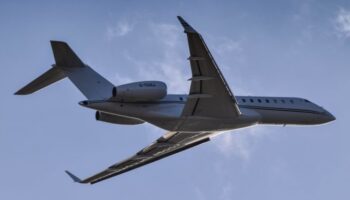The low-cost airline Ryanair Ticket will allow passengers who have booked flights from Germany after May 1, 2024 to pay later. The company is demanding an increased aviation tax from the federal government from this date.
The tax increase is not going down well in the industry at all, because Germany is lagging far behind most other EU countries when it comes to aviation’s recovery from the corona pandemic. However, the reason is not that demand has plummeted, but rather that airlines are continuing to keep supply at a level that is significantly below that of 2019. This is also used by many airlines to be able to charge higher ticket prices. Numerous carriers have once again scaled back their offers to/from Germany for the summer of 2024, citing the high costs of handling, take-offs and landings, but especially the comparatively high taxes and fees in Germany.
Some low-cost airlines, including Ryanair and Wizz Air, do not show “additional costs” in detail. This is definitely a matter of calculation, because if you as a passenger do not take your flight, you have a legal right to a refund of taxes and fees. This is the name of the airline and it is not available, but the passengers are also present. With Ryanair and Wizz Air, for example, it is extremely difficult to enforce a so-called tax refund, because customer service initially claims that you have not paid any taxes at all. This is of course nonsense, because these are included in the price of the flight.
Especially with extremely cheap tickets, it can happen that they don’t even cover the controversial air traffic tax. This is also calculated, because the carriers speculate that additional paid services will be purchased and if this is the case, then the actual final price paid is quickly higher than the “pure flight price”, which only includes a small handpiece.
The Ryanair ticket does not include passport, flight, date May 1, 2024, date Germany, departure and arrival date of night flights, departure date and departure date. The carrier has repeatedly publicly railed against the German government’s approach, but you don’t want to pay the tax yourself, even though in many cases that’s exactly what you do with ultra-cheap tickets anyway. We use Ryanair by email with a subsequent request to the house, whose company details have to be given the opportunity to withdraw from the transport contract free of charge. The carrier promises that the flight price already paid will then be fully refunded.
At first glance, such an additional demand as that now applies to customers who have already booked tickets from May 1, 2024 is covered by Ryanair’s General Conditions of Carriage. The fact that the carrier expressly writes “You do not pay any government taxes” during the booking, but at the latest on the invoice, could well have legal consequences. Passengers who do not want to put up with the additional demand could definitely go to court if they are refused boarding or the airline cancels the booking, because something that is not paid for according to the invoice cannot be claimed subsequently, or can only be claimed with great difficulty. It is therefore to be expected that specialized companies and/or consumer protection organizations could go to court to have the matter clarified. At that point at the latest, the consistent non-disclosure of taxes and fees would develop into a possible boomerang for the low-coster. If a lawsuit were filed against them, competitors who use the same practice and now also ask their customers to make additional payments would also be affected.
Airlines are liable for taxes
The aviation tax in Germany is a tax levied on passengers departing from German airports. However, the actual tax debtor is the airline, which has to pay the corresponding tax for each departing passenger.
If there is a subsequent increase in the aviation tax, for example due to a change in the law, the question arises as to whether the airlines are entitled to demand the difference from passengers. As a rule, airlines are entitled, according to their general terms and conditions, to require additional payment of the air transport tax from passengers if this is legally permissible.
However, passengers have certain rights in the event of an additional aviation tax claim. First of all, airlines must provide transparent and timely information about the additional payment. Passengers should be given clear information about why an additional payment is required and how much it is. In addition, passengers must have the opportunity to check the additional payment and, if necessary, object if they have doubts about the legality of the additional payment.
It is important to note that in the event of an unlawful additional aviation tax claim, passengers have the right to contact the relevant supervisory authority or consumer protection organization to lodge their complaint and, if necessary, take legal action.
Pour vous tenir au fait, cet article autour du thème « Ultra Légers Motorisé », vous est suggéré par emeraude-ulm.com. La chronique est générée de la façon la plus correcte qui soit. Si jamais vous décidez d’apporter quelques notes sur le sujet « Ultra Légers Motorisé », vous êtes libre de rencontrer notre rédaction. La raison d’être de emeraude-ulm.com est de rassembler en ligne des actualités sur le sujet de Ultra Légers Motorisé et ensuite les présenter en répondant du mieux possible aux interrogations de tout le monde. En visitant de façon régulière nos contenus de blog vous serez informé des futures publications.




